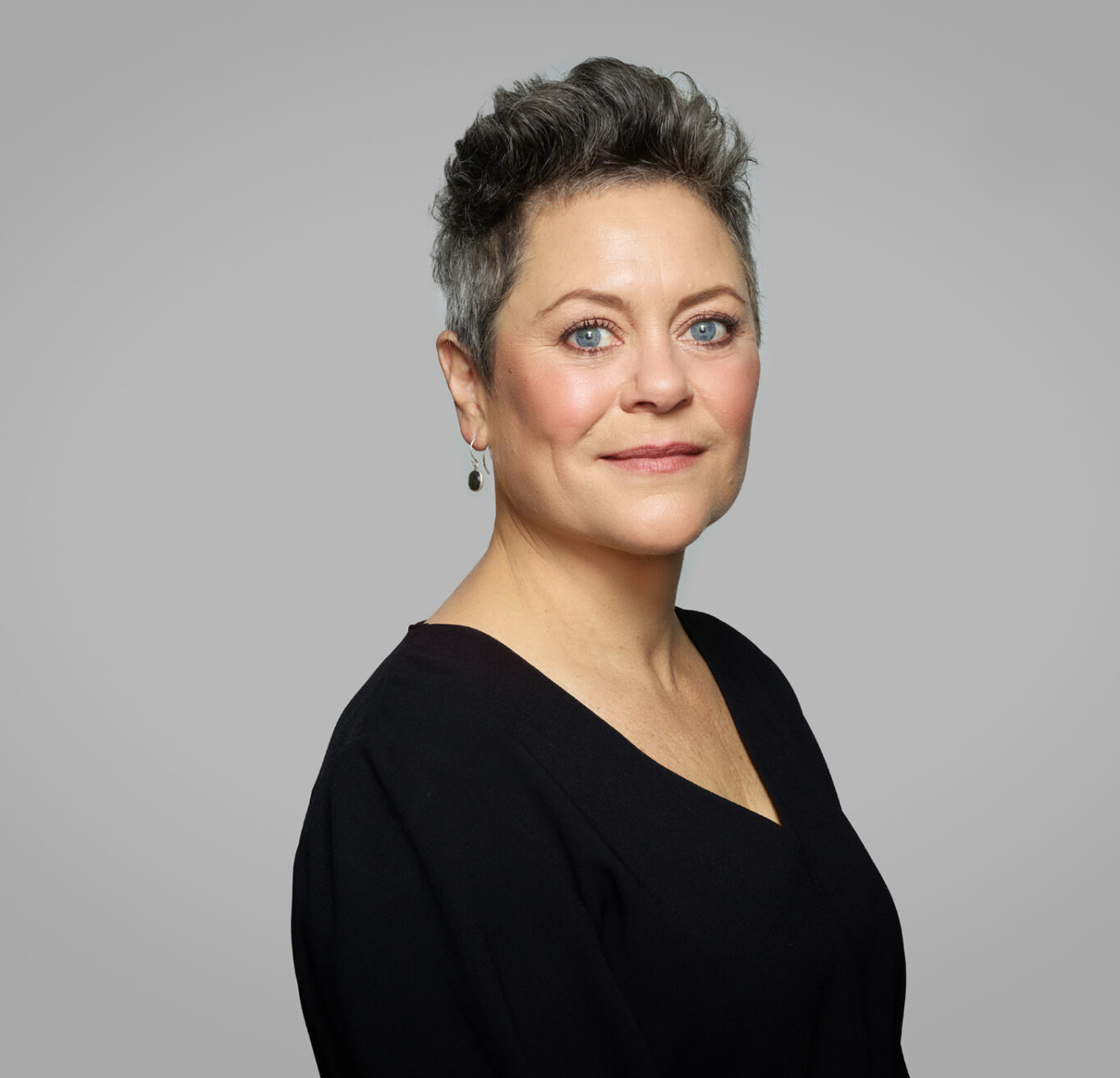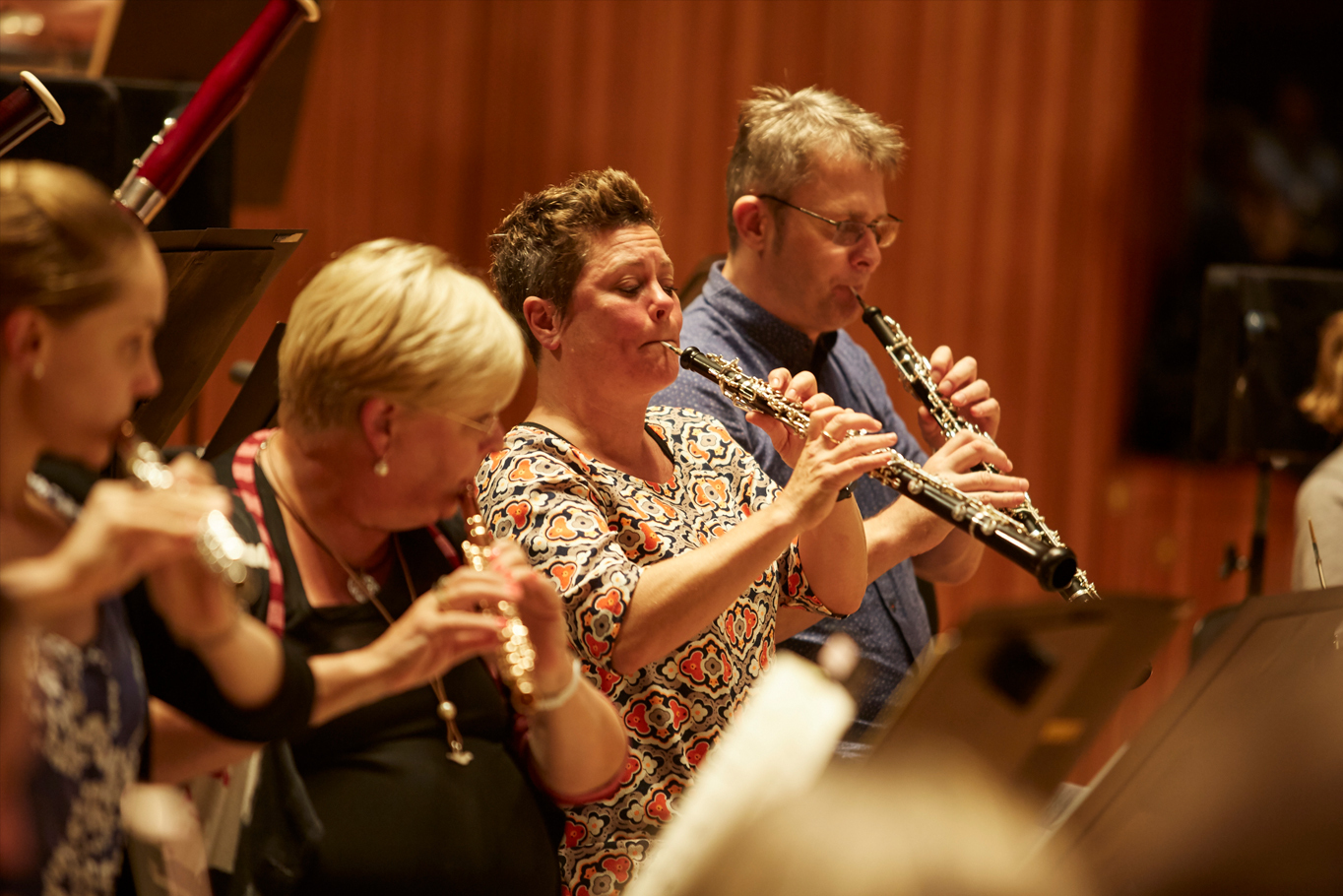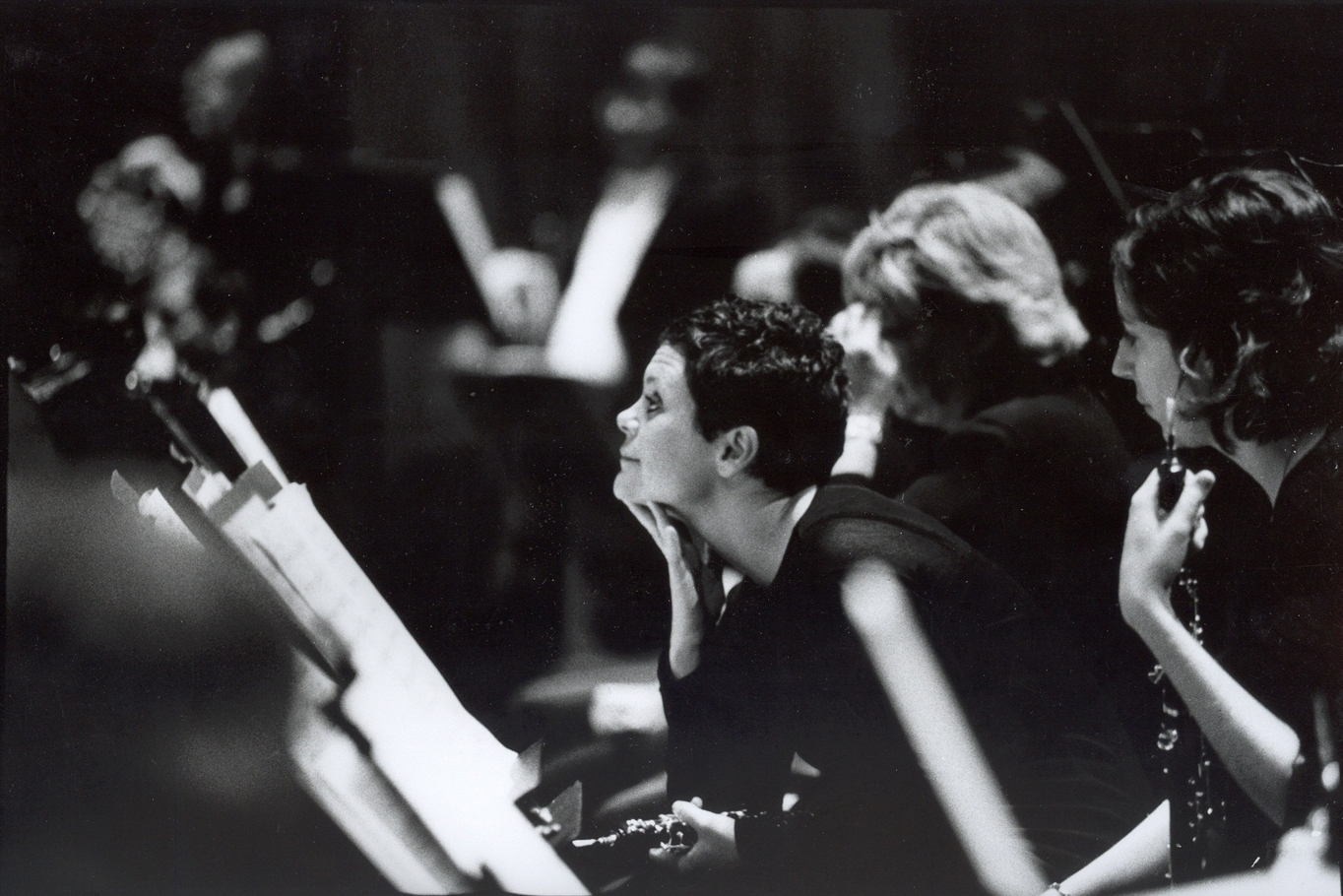
Farewell Diana Doherty
24 July, 2024
After 27 years, Diana Doherty is stepping down as Principal Oboe of the Sydney Symphony, bringing to an end an incredible period in the Orchestra’s history. But as Diana explains, she’s not retiring – rather this is just another evolution in a career full of them.
By Hugh Robertson
One of Australia’s most celebrated musicians is poised to play her final note as a member of the Sydney Symphony Orchestra.
After a career spanning 27 years and five Chief Conductors, Diana Doherty is stepping down as Principal Oboe – not to retire, as she is quick to point out, but to allow room for more than one focus in her life.
‘It takes such dedication, this job,’ says Doherty, sitting in the sunny living room of her Annandale home. ‘It's the best job, but it takes a lot of dedication and a lot of single-mindedness. And I think I am ready to not be so single-minded about one thing anymore.’
Single-mindedness is the theme that emerges when speaking with Diana about her career. From the moment she decided to follow her oboe teacher from Queensland to Melbourne at the end of her first year of university, her instrument has been a constant companion and animating force in her life – especially because she shares that passion with Alexandre Oguey, her husband of nearly 34 years and the Orchestra’s Principal Cor Anglais.
The other thing that comes up is that Diana repeatedly says that she never felt good enough, that she has had to keep evolving just to keep up. That she still feels this way, despite three decades at the very peak of her profession, tells you everything you need to know about how she got there – and stayed there for so long.
Diana grew up in Queensland, the youngest of nine siblings, and was surrounded by music and culture from the outset.
‘Dad played the piano every night,’ she recalls with a smile. ‘All my siblings played something, so music was always happening in in some aspect – violin, cello, clarinet, flute, trumpet, trombone, piano. And then there was the radio as well. So it was just always there.
‘One funny memory is of my first experience going to the opera. It was The Tales of Hoffmann and I was just blown away. I remember dancing back to the car, saying to my dad, “I’m going to be an opera singer!” I went to choir the next morning, opened my mouth, and the teacher said, “Diana, could you please stop doing that?”
‘So that was my that was my opera career, done and dusted in less than 24 hours!’
Opera’s loss was the orchestra’s gain. Diana was given a violin for her sixth birthday, then taking up piano. The oboe happened almost by accident: the education department in Queensland launched a program for free tuition for wind instruments, and there happened to be an old oboe lying around the house that had belonged to one of Diana’s brothers.
‘[My mum] said, “I think there's an oboe there somewhere – if you can get a sound out of that, I guess you can learn that!”
‘I didn't know anyone else who played it, so I felt kind of special. And it was very quirky with the whole reed thing – little did I realise what a can of worms I was getting into,’ she says with a knowing laugh.
Throughout high school Diana remained passionate about music, but it was far from the only thing in her life.
‘There were lots of things I loved doing, and oboe was important, but it was always a little bit embarrassing too. I grew up in Brisbane at a time, and in a big state school system, where music just wasn't really a thing that many people did – certainly not classical music.
‘But when I was in year 12, I had this wonderful experience where I got to play with the QSO in the ABC Young Performers competition. That was a mind-blowing experience. I don't remember one thing about it – it just whooshed past, like some kind of parallel universe, and the only thought I had was, “I really want to do this again.”
‘There were all these other things I wanted to do, but I figured, “well, I've just got to go with music now.”’
Diana enrolled at the Queensland Conservatorium of Music, studying piano and oboe and having an amazing time. But when her teacher, Stephen Robinson, got a job in Melbourne, Diana knew she had to go with him – even though that meant moving out of home to a bigger city where she didn’t know anybody.
‘It was pretty hard,’ she admits. ‘And the way I played the oboe was being completely defragged and put together again. There were days when I felt I could play well, and other days where I didn’t even know what hand to put where! Everything was being reconstructed.
‘But at the same time, I decided I would do the Young Performers Competition again, so at various intervals I had deadlines where I had to go and perform. It was a funny year, because I was taking everything apart but then I had to go and perform a concerto – so I would put it together – and then take it apart, over and over. In retrospect, I don't know how I got through that year. I was probably just stumbling from crisis to crisis.’
Of course she didn’t just get through but thrived – and when she graduated from VCA she was awarded the prize for the top graduating student.
After a few months working on a contract for the opera orchestra in Victoria, Diana moved to Zurich University of Music in Switzerland, to continue her studies with highly regarded pedagogue Thomas Indermühle.
Incredibly, having finished high school at 17, Diana was only 20 at this point – and now trying to make her way alone on the other side of the world.
‘It was pretty daunting,’ she recalls. ‘But I was so determined. And I was extremely fortunate because I made a fantastic friend, another Australian oboist – Leanne Glover, who’s recently retired from the Western Australian Symphony Orchestra. It was just fantastic having her to speak English to, and to understand each other's humour.’
Life in Zurich was also made more interesting when Diana met Alexandre, another classmate, and the pair quickly became inseparable. Once their two-year course concluded Diana knew she wanted to stay and see where things went with this guy, so immediately started applying for orchestra jobs – even though, still very young, she didn’t feel at all ready.
‘I really didn't feel like a finished product. But I knew then that…I wanted to experience having a job. I wanted to move on with life and not be a student anymore.’
So it was something of a shock when Diana won the job of Principal Oboe for the Symphony Orchestra of Lucerne – and shortly afterwards, when Alexandre won the role of Associate Principal Oboe in the same orchestra. All of a sudden, still in their early 20s, Diana and Alexandre were married, learning how to be adults and manage their household, and how to navigate their relationship – all hard enough without the added pressure of one being the other’s boss!
‘We were pretty young,’ says Diana with a smile. ‘I was only 23 when we got married, and he was 25. But we worked it out together and we're still here.
‘I don't think I could have done it without him, actually,’ she continues. ‘It was wonderful for me to have a partner – and still is and has always been – so interested in oboe playing. I think it would have been very difficult for anyone else to really understand me.’

The next few years flew by, with the pair steeped in their craft. Diana had success in significant international competitions; at home, when Alexandre and Diana weren’t performing in the orchestra together, they were working freelance all around Europe.
‘Both of us were very interested in developing as players and as musicians,’ she recalls. ‘We were absolutely passionate about what we were doing. And we lived and breathed it. It was wonderful.’
Then in 1995, Diana fell pregnant with their first child, and all she could think about was coming home to be closer to her sisters, who had their own children, and being part of that environment.
‘I reached out to the Sydney Symphony,’ says Diana. ‘I’d had some contact with them a year earlier because they were sounding out people overseas about jobs that were free in the orchestra and were asking what our plans were. At that moment, it was not on my radar at all to come back to Australia. But then as soon as I had Julie, I rang the Orchestra back and said, “are those jobs still free?”’
The rest, as they say, is history. Diana and Alexandre moved back to Sydney permanently in 1997, and ever since have been the beating heart of the Orchestra’s woodwind section. Of course, Diana’s star has continued to rise separate to her role with the Orchestra, maintaining a significant solo career in particular as a recording artist for ABC Classics.
The highlights of Diana’s time in Sydney could fill a book – perhaps one day they will – but what first comes to mind is her fierce support of living Australian composers, and the extraordinary works that have come out of that – by Graeme Koehne, Allan Zavod and Nigel Westlake, to name but a few.
Then of course there’s Bird Spirit Dreaming, the oboe concerto by Ross Edwards. Commissioned for Diana and the Sydney Symphony Orchestra by Andrew and Renata Kaldor, it was premiered in 2002 under the baton of the great American conductor Lorin Maazel. An immediate hit, Maazel invited Diana to perform it with the New York Philharmonic in 2005; it was also the centrepiece of the Orchestra’s celebrations for Edwards’ 80th birthday in 2023, with Diana once again featuring as soloist under Simone Young.
‘What a leap of faith, really,’ says Diana. ‘I mean, what an extraordinary idea, and how amazing for Maazel to take that on. Incredible.’
That concerto – complete with Diana’s bird-like dancing choreography that was part of the performance – launched her into the stratosphere as an international star. But of course, as she does time and again, Diana had to convince herself that she was actually up for it.
‘I used to get really fearful of conductors, really nervous,’ she explains. ‘I still do. But I remember the first time playing for Lorin Maazel [Ed. In July 2000, when he conducted Bartók, Brahms and Tchaikovsky] and being completely starstruck, trying to talk myself through it and saying, “Look, he's amazing, but he’s only here this week. It doesn't matter what he thinks of you, just do your best and then life goes on.” I remember quite distinctly thinking, “Whether he likes you or not, whether he thinks you're any good or not, it’s actually not going to change your life anyway.”
‘So the week went, it was fine. Whatever. And then next time he comes, he's conducting me in the Edwards. And then we do it in New York! And literally it changed my life! It’s pretty extraordinary.
‘But I remember being really struck by the faith that the SSO had in me to program the Edwards in that program. And the leap of faith that Maazel took to say yes. And to do it in New York – wow!’

In many ways it seems like a strange time to leave the Sydney Symphony. The renewed Sydney Opera House Concert Hall is now one of the world’s great concert halls on the inside as well as the outside; Simone Young’s tenure as Chief Conductor is in its infancy but already it is clear something special is happening; and audiences are responding in droves, with concerts regularly selling out weeks in advance.
Diana knows she is walking away from a good thing, but the sense of calm in her voice confirms she is completely at peace with her decision. ‘It is a shame to leave now, obviously, because I think it's such a no-brainer, the SSO and Simone Young.
‘I just think she's got the most incredible brain. I don't know how she gets through the amount of repertoire that she does – it's incredible. So I’m sad to leave the orchestra at this time, but everyone’s got their own trajectory – and it’s time for me.
‘I'll miss so much. I’ll miss that feeling you get after a concert with your colleagues, that we got through it. Even aside from the actual playing, the music takes you on an emotional journey – it’s like you've been on a trek together or played a Premier League final. That I will really miss.’
As for what’s next?
‘I think, in a nutshell, I'm looking to looking forward to having a more creative life,’ she says with a faraway look in her eye. ‘I think it comes down to just accepting who you are – and that that maybe I've done enough. It's always tempting to want to do more, but I felt like I pushed myself a lot for a long time, to continually keep evolving.’